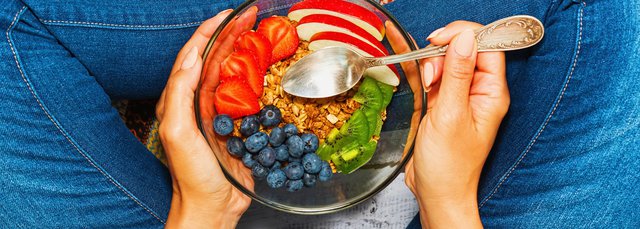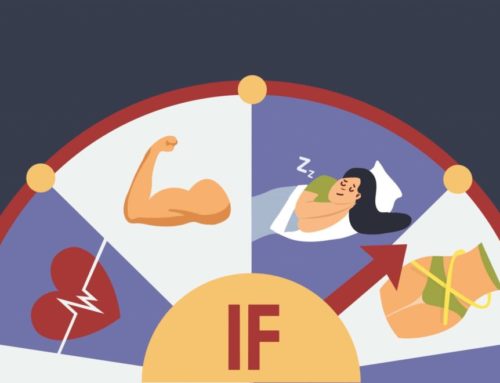Why adolescence is characterized as the most critical period for setting the right foundations for a good future life? How nutrition and exercise determine a teenager’s later life quality throughout adolescence?
This article highlights the importance of teaching children to respect and take care of them from an early age.
Therefore, within the context of a basic care possible and necessary to be provided to our organism, the balanced diet and adequate physical activity are included, for ensuring the health of our organism.
Obesity reached high peaks in recent years, running with rates creating fear and questions about modern man’s lifestyle.
The result was a new movement of food “mania” promoting the consumption of an increasing number of “green meals”.
Fortunately, people started being aware of their health evolution, prescribed as no good up to now.
Obesity appears since childhood or even infancy, a fact that certainly cannot predict a healthy life.
Childhood & adolescent obesity are now extremely crucial conditions, definitely to be eliminated.
Below we see a number of factors playing a leading role in the spread of this phenomenon:
- genetic factors
- psychological factors
- biological agents
- environmental factors
- sociological factors
- or even medical factors
In recent decades, the modern teenager’s life has changed dramatically a fact reflected in his/her health. Instead of playing in the parks with other teenagers (exercising body & mind), he/she gets stuck in front of a screen (TV, video game, computer, mobile or tablet).
This reality is frightening. Increasingly younger children stop engaging in physical activity and are limited to the virtual reality of electronic games and internet.
This could have only a serious impact on their physical condition and body weight.
It cannot be a random event, but comes as the result of wrong education about food & exercise.
In our days, children receive wrong stimuli about fun and on their free time management.
Instead of being in groups and working together, each child spends its time alone with an electronic device for “companionship”.
Surely, this is not the children’s fault.
Parents need to set the right foundations and especially give the proper motivation to children to “explore” other more interesting options to overcome their boredom.
Options to make their childhood and adolescence memorable, filled with memories of experiences with friends and not with hours of endless loneliness.
As we grow up, the appetite increases …

In the critical age of adolescence (around the age of 10 (girls) and 13 years (boys)), the child’s appetite increases significantly.
A fact that should not scare you, as this is completely normal. The child, as grows up, needs energy and nutrients. Plenty of nutrients, indeed.
Energy (measured in calories) is available via the diet, with every food consumed, and translated into calories. Its caloric value determines the amount of energy provided to the “machine” called organism.
Therefore, in the critical phase of adolescence, the organism is in great need for energy (calories) to enhance the development of the child into an adult.
The number of calories needed daily for a teenager’s healthy growth is not accurate, varying by a number of factors.
First, a determining factor differentiating the caloric needs of a teenager’s organism is the gender. Boys have a higher caloric need than girls do, in adolescence.
For boys: around 2600 – 2800 calories / day
For girls: about 2000 – 2200 calories / day
However, is not only the factor of gender determining accurately a person’s caloric needs. For a more accurate determination, special measurements / tests and a diagnosis by a nutritionist are required.
At this age, therefore, hunger is a normal symptom indicating the developmental process of the child’s organism.
The danger, however, hides at the end of adolescence critical phase and the entry into the adult life.
Food consumption problems usually start at this critical point, meaning just eating problems and not just overeating, or obesity, as (especially in young girls) even anorexia is a common phenomenon at this age.
Both overeating and anorexia may cause serious problems in a young person. Problems immediately perceived, also including problems manifested in the future.
“Healthy Nutrition” – Its Meaning in Adolescence
It’s important for a child to learn the needs of its organism /body since an early age, so leading him/her to respect his/her existence and needs.
The goal of every meal is to take care of the organism, ensuring our life.
That is why EVERY MEAL should be part of a balanced diet (especially during the critical period of adolescence when the child needs nutrients to grow physically and mentally).
Talking about a balanced diet – for avoiding misunderstandings – we are not talking about diets or other extravagant special nutrition programs, excluding elements from the diet.
A teenager will eat everything normally. Carbohydrates, proteins and fats are essential for his/her diet.
Here are some basic rules for a balanced diet:
- 3 daily meals (breakfast – lunch – dinner)
- high amount of fruits & vegetables
- fiber
- a lot of water
- more grilled or steamed meals than fried
- fixed meal schedule
- a moderate number of sweets
- reduced salt intake
- no soft drinks (especially those containing large amounts of sugar)
- natural juices (though is always better to consume whole fruits)
- olive oil / no to butter (or other animal fats)
- low consumption of red meat (preferably lean)
- lean protein (fish, poultry, lean red meat)
- dairy products
- whole grain products
- nuts and dried fruits (ideal for snacks)
- seeds
- no excess of fast food (every teenager will eat them, but in moderation)
- no alcoholic beverages
- no smoking (affects the development of the adolescent dramatically and his/her general health)
- physical exercise promoting a more balanced pattern of life and nutrition
- attention to proportion of meals (ratio of carbohydrates / proteins / fats)
- inclusion of colors (“colored” foods are usually a source of many antioxidants)
- no light commercial products
- no processed foods
- low fat products
- dairy products enriched with calcium (for strong bones)
- all legumes
- greens
- information to child about the non-nutritional value of food
- trial of new flavors
- attention to adequate intake of calcium / magnesium / potassium from the foods selected
- attention to the size of food portions
- each main meal should be accompanied by at least one fruit or vegetable
Other Useful Tips for Adolescence

In adolescence – as already emphasized – not only the diet is very important, but the lifestyle of the person in general, as well.
How many hours – for example – spent on the couch, will surely determine the subsequent course of the person’s health.
It is important for parents to encourage children to have hobbies, being engaged in manual activities for sharpening their mind, do sports, socialize (with other people of their age), play in general.
It is also important for parents to set clear limitations for the adolescent.
Certainly, a child will also deal with his/her computer, his/her video games, and be online. The point is to do this in a controlled way. Attention, controlled not only in terms of quality, but also in terms of time dedicated daily to them.
It is also important to monitor the development of the adolescent regularly by his/her personal doctor and to change the diet according to his/her needs.
A teenager’s health care and regular monitoring can prevent a difficult situation at a later stage.
The breakfast consumed by a teenager every day at school is also important.
Parents should be more meticulous on this. Since from an early age, the child should obtain the correct understanding of a balanced diet, avoiding in this way the tragedy experienced by most parents with their children returning their healthy snack intact from school, turning to unhealthy snacks with their pocket money.
There are magazines analyzing in detail (in an understandable and pleasant way for a teenager) the importance of proper nutrition. Watch cooking shows and programs with your child and discover new cooking horizons.
Get the child involved in the process of preparing a meal, so in this way will learn to appreciate more the “result” found in his/her plate.
Maintain your fridge full of healthy snacks, fruits and vegetables at all times.
A teenager – the moment he/she is hungry – will open the fridge and eat whatever finds in front of him/her.
Another important point requiring parental control – is the part of rest and sleep. A teenager should, in addition to a regular diet and exercise program, also follow a regular sleep and rest program.
Sleep is a key element for the healthy development of the adolescent and for proper functioning of his/her entire organism.
Both teenager’s diet and exercise or sleep programs should fit the teen’s lifestyle and personality. An “oppressive” program is more likely to cause the teen to “rebel” and turn to an unhealthy lifestyle (which you would like to avoid).
Finally, a parent should not be critical or criticize strictly a case of a single “deviation”. There will be times when due to stress, psychological pressure (adolescence is a difficult period for any child) the child will develop extreme behaviors (on nutrition or general behavior in his/her daily schedule).
No need to be tough on him/her. Just check the situation and try to lead the teenager to a smooth (and not forced) reintegration into a healthy environment.






